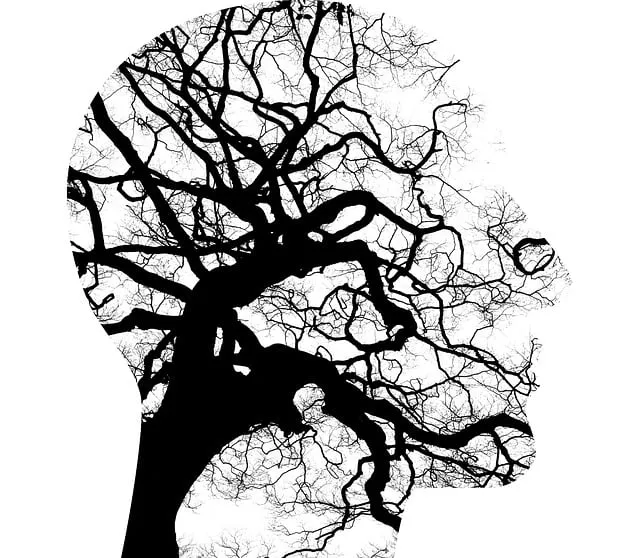Chronic stress, stemming from challenging situations or negative thinking, significantly impacts mental and physical health, according to Golden Kaiser Permanente mental health providers. They emphasize that it can lead to anxiety, depression, sleep disturbances, and physical ailments by compromising coping abilities. Through evidence-based practices like cognitive-behavioral therapy, mindfulness techniques, social skills training, and journaling, individuals can regain control, enhance resilience, and improve overall mental wellness. Golden Kaiser Permanente's holistic stress reduction approach includes programs on mindfulness, relaxation, emotional intelligence, and burnout prevention for healthcare providers, fostering lasting inner strength and adaptability.
Stress reduction is a vital aspect of maintaining good mental health. In today’s fast-paced world, understanding how stress impacts our well-being is crucial. The article explores various strategies for managing stress, with a particular focus on the role of Golden Kaiser Permanente mental health providers who offer specialized support. From recognizing stress triggers to implementing effective techniques and building resilience, this comprehensive guide aims to empower individuals to take control of their mental health.
- Understanding Stress and Its Impact on Mental Health
- The Role of Golden Kaiser Permanente Mental Health Providers in Stress Reduction
- Effective Stress Reduction Techniques: A Comprehensive Approach
- Building Resilience and Sustaining Well-being Long-term
Understanding Stress and Its Impact on Mental Health

Stress is a natural response to various life challenges and demands, but when it becomes chronic, it can significantly impact mental health. The constant activation of our body’s stress response system, often triggered by prolonged exposure to stressful situations or negative thinking patterns, can lead to long-term mental and physical health issues. Recognizing and understanding these effects is crucial for effective stress reduction.
Golden Kaiser Permanente mental health providers emphasize that chronic stress can contribute to anxiety, depression, sleep disturbances, and even physical ailments. It disrupts our ability to cope with everyday demands, leading to feelings of overwhelm and reduced overall mental wellness. However, by developing coping skills such as mindfulness practices, social skills training, and maintaining a mental wellness journal, individuals can regain control and enhance their resilience in navigating stressful situations.
The Role of Golden Kaiser Permanente Mental Health Providers in Stress Reduction

Golden Kaiser Permanente mental health providers play a pivotal role in helping individuals navigate and reduce stress. These professionals are equipped with specialized knowledge and skills to offer comprehensive solutions tailored to each person’s unique needs. They employ evidence-based practices such as cognitive-behavioral therapy, mindfulness techniques, and social skills training to empower clients with effective coping strategies. By integrating these methods into daily routines, individuals can enhance their resilience and overall well-being.
Moreover, the mental health providers at Golden Kaiser Permanente foster an environment of support and understanding, encouraging self-care practices and self-esteem improvement. They guide patients through personalized journeys, helping them identify and challenge negative thought patterns and behaviors, ultimately leading to lasting stress reduction and improved quality of life.
Effective Stress Reduction Techniques: A Comprehensive Approach

Stress reduction is a comprehensive process that involves various techniques tailored to individual needs. At Kaiser Permanente, our mental health providers emphasize a holistic approach, addressing both the mind and body. We recognize that effective stress management requires a multifaceted strategy. Thus, we offer a range of services designed to empower individuals in their journey towards inner peace.
One such method is the integration of Mental Health Education Programs, which equip people with valuable knowledge and skills. These programs focus on mindfulness, relaxation techniques, and emotional intelligence, enabling individuals to better navigate stressful situations. Additionally, our Burnout Prevention Strategies for Healthcare Providers are tailored to address the unique challenges faced by those in the medical field, fostering resilience and sustainable wellness. By combining these evidence-based practices with a strong support system, we aim to enhance overall well-being and promote lasting inner strength development.
Building Resilience and Sustaining Well-being Long-term

Building resilience is a key component of sustaining well-being in the long term. According to Kaiser Permanente mental health providers, this involves developing coping skills that allow individuals to navigate life’s challenges with adaptability and strength. Through social skills training and learning effective stress reduction methods, people can fortify their emotional resilience, enabling them to bounce back from setbacks and maintain a sense of equilibrium.
The process of building resilience is an ongoing journey. It requires consistent practice and a commitment to personal growth. By integrating coping skills development into daily routines, individuals can enhance their ability to manage stress, improve mental clarity, and foster positive relationships. Golden strategies such as mindfulness practices, exercise, and connecting with supportive communities play pivotal roles in this endeavor, ensuring that one’s well-being remains robust over time.
In conclusion, stress reduction is a multifaceted journey crucial for maintaining mental health. By understanding the profound impact of stress, leveraging the expertise of Golden Kaiser Permanente mental health providers, and adopting comprehensive techniques such as mindfulness, exercise, and social connection, individuals can build resilience and sustain well-being over time. These strategies, combined with consistent support from healthcare professionals, empower folks to navigate life’s challenges with greater ease and enhance their overall quality of life.






